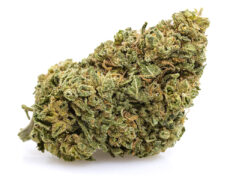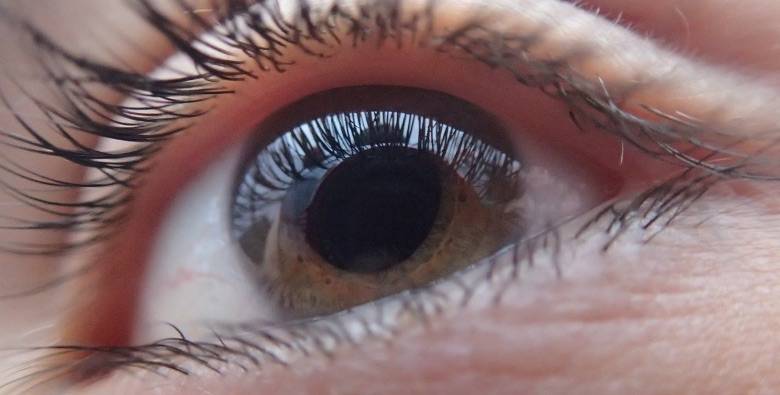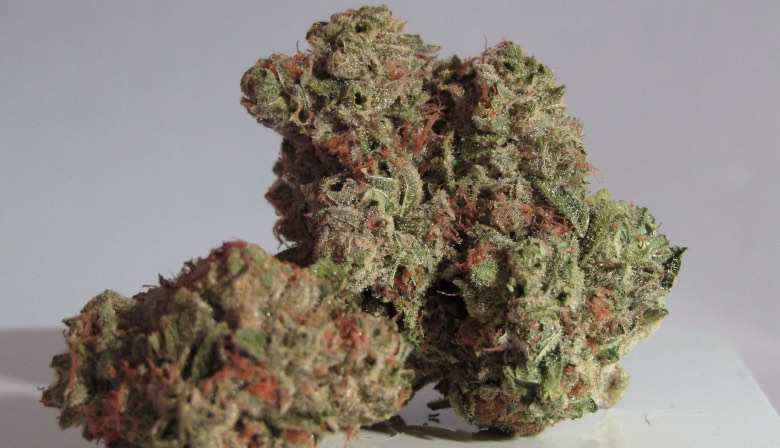Modified on: 19/04/2024
WHAT IS CBN (CANNABINOL), WHAT ARE ITS EFFECTS AND WHAT ARE THE DIFFERENCES WITH CBD?
When we talk about CBD weed and illegal marijuana, our thoughts go to CBD – as regards the first – and THC – for the second -, or the two prevalent cannabinoids in each kind of cannabis.
What we don’t consider is that the hemp plant has hundreds of active ingredients, not just two! One of these is CBN, cannabinol, with which CBD is often confused.
-
 SMALL & BIG
SMALL & BIGBUBBLEGUM
Starting from: 1,25CHF/gIndoor | CBD – CBDA <22%
Grams3 5 10 20 50 100 -



DO SI DOS
Starting from: 2,00CHF/gIndoor | CBD – CBDA < 19%
Grams3 5 10 20 50 100 -



ROYAL GG#4
Starting from: 2,30CHF/gIndoor | CBD – CBDA < 40%
Grams3 5 10 20 50 100 -



GORILLA GLUE
Starting from: 2,90CHF/gIndoor | CBD – CBDA < 20%
Grams3 5 10 20 50 100
At this point you may be wondering what CBN is, what its effects are and how it differs from its brother cannabidiol.
In this in-depth study we will focus on this active ingredient of cannabis, talking about it in detail so that you can know everything about it!
After just a few minutes of reading, you will have a clear idea of CBN, which is rarely talked about but which, in reality, is extremely important.
Meet the CBN: one of the minor cannabinoids in marijuana
As we have anticipated, the cannabinoid that prevails in the CBD weed Switzerland is CBD while the one that prevails in the illegal weed in Switzerland is THC.
The CBN, an acronym that denotes “cannabinol”, is instead an active ingredient that stands by less than THC and CBD, but that, in fact, offers a number of benefits for humans and animals.
Specifically, CBN is a non-psychoactive cannabinoid that forms as THC ages. It is therefore present in large quantities in amber-colored trichomes, which are the cannabinoid-producing glands that become milky when ripe and amber when they are in a slightly advanced stage.
Some people, especially those who favour the euphoric effects of THC, do not tolerate the effects of CBN and do not seek them in any way.
Others, on the other hand, prefer cannabis that is slightly more mature than usual to make the most of the presence of cannabinol.
But what are the CBN’s effects?


CBN: beneficial effects given by its presence in cannabis flowers.
Researchers discovered CBN quite recently, but they quickly investigated the potential benefits of this cannabinoid for our body. Here are the effects of CBN known so far:
- antibacterial
- neuroprotective
- appetite stimulators
- hypotensive
- anti-inflammatory
Let’s see them in detail.
Read also: The role of terpenes in the cannabis plant.
CBN as an antibacterial
Studies regarding CBN have shown that it can be a powerful antibacterial. In particular, the researchers investigated its action on strains of MRSA bacteria resistant to traditional antibiotics, obtaining impressive results (source: ResearchGate, Antibacterial Cannabinoids from Cannabis sativa: A Structure-Activity Study)
If scientific research continues, it is possible that in the future we will use CBN to fight bacterial infections that antibiotics cannot defeat.
CBN as a powerful neuroprotection
It seems that CBN can act as an important neuroprotector since, in a study on laboratory mice, researchers had excellent results applying cannabinol against ALS. In mice, CBN could delay the onset of this disease (Cannabinol delays symptom onset in SOD1 (G93A) transgenic mice without affecting survival, National Library of Medicine)
Although human studies are in short supply, there are high hopes that cannabinol will be a useful ally against ALS and other neurodegenerative diseases.
CBN stimulates the appetite
During studies on laboratory mice, the researchers found that, during cannabinol intake periods, the rodents increased the amount of food ingested.
This study suggests that CBN may have, like THC, the power to stimulate appetite (useful in case of eating disorders). Unlike THC, which mice reject due to its psychotropic effects, CBN appears to be well accepted by rodents as it has no effect on the psyche.
Again, human studies are needed as further confirmation.
Benefits of cannabinol on glaucoma
Research carried out on rabbits, found that CBN (like THC and CBD) reduce eye pressure, the most important risk factor for glaucoma.
Despite this result, studies on this are still in their infancy and do not show that cannabinol is more effective than the medicines already used to treat glaucoma.


CBN anti-inflammatory effects
Like CBD, CBN also appears to be an effective anti-inflammatory, particularly in the treatment of rheumatoid arthritis. (Cannabinoids as novel anti-inflammatory drugs, Future Med Chem, 2009)
Again, the researchers only worked on laboratory mice. Yet, the results are excellent and bode very well.
Now that you know the potential benefits of CBN, let’s see the differences between this particular cannabinoid and CBD.
Read also: CBD flowers: everything you need to know about THC-free legal hemp flowers
CBN and CBD: differences and characteristics in common between the two cannabinoids
Both cannabidiol (CBD) and cannabinol (CBN) are cannabinoids, i.e. active ingredients produced by the Hemp Sativa L plant.
Despite this, CBD is contained in large quantities in legal CBD flowers, while CBN is found predominantly in high-THC cannabis, as it begins to prevail as tetrahydrocannabinol ages.
Since THC is present in tiny quantities in CBD Buds (less than 1%), even the CBN content cannot be high!
However, this shouldn’t be a concern for legal cannabis admirers. CBD and CBN have common effects, namely anti-inflammatory, hypotensive, neuroprotective and antibacterial effects.
On the other hand, CBD offers us many more benefits than CBN!
In fact, in addition to those already mentioned, it has effects as:
- pain relievers
- relaxing
- antispasmodics
- antiemetics
- antioxidants
- immunomodulators
- anticonvulsants
Cannabidiol-based products, such as CBD oil, legal hash and legal hemp flowers, are therefore potentially useful (although still to be formalized) for the treatment of numerous conditions.
Do you want to buy the best CBD products online? Visit JustBob, our CBD cannabis online shop now! We are waiting for you.






